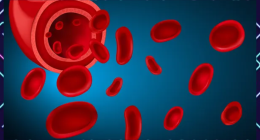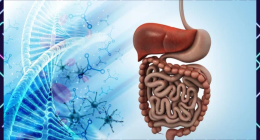Machine Learning Unveils Key Markers for Healthy Aging, Independent of Chronic Disease Risk – This study presents a novel approach to understanding healthy aging by employing machine learning to analyze the health trajectories of individuals over time. The researchers successfully identified key markers that predict healthy aging, independent of chronic disease risks. This offers a valuable tool for promoting healthier aging and improving lifespan.
This discovery marks a significant leap forward in our understanding of this critical process and paves the way for a future where aging can be managed, not just endured.
One of the most compelling aspects of the study is the development of a powerful machine learning model that can accurately predict lifespan beyond 85 years, even at the young age of 30. This predictive capability holds immense potential for early intervention and preventative measures, allowing individuals to take proactive steps towards a healthier and longer life. Furthermore, the model pinpoints specific markers that contribute to longevity potential, revealing how these markers vary across different age groups. This understanding allows for personalized interventions tailored to individual needs and circumstances.
Another noteworthy finding is the consistent presence of low chronic disease risk markers in individuals with high longevity potential. This suggests a strong link between healthy aging and reduced susceptibility to age-related diseases, highlighting the importance of prioritizing healthy lifestyle choices throughout life.
The study’s generalizability across diverse populations, including those in Israel, the US, and the UK, further bolsters its significance. This indicates that the identified markers and predictive models hold promise for application across various ethnicities and backgrounds, paving the way for equitable access to improved health outcomes for all.
The study’s impact extends beyond immediate clinical applications. By providing valuable insights into the biological mechanisms underlying healthy aging, it paves the way for the development of comprehensive and longitudinal models. These models can revolutionize our understanding of aging and provide a robust framework for designing novel interventions that target the root causes of age-related decline.
While further research is necessary to address specific questions, such as quantifying a “healthy state” and exploring the physiological processes underpinning the disease-related findings, this study marks a watershed moment in the field of aging research. It offers a powerful tool for promoting healthier aging, enhancing lifespan, and ultimately, improving the quality of life for individuals across the globe.

Key Findings
- Machine learning model identifies early indicators of healthy aging. This includes markers like neutrophil counts and alkaline phosphatase levels.
- Model accurately predicts lifespan beyond 85 years, even at age 30. This demonstrates its potential for early intervention and preventative measures.
- Markers contributing to longevity potential vary across ages. Younger adults are impacted by alkaline phosphatase, mid-adulthood by glucose and cholesterol, and older ages by albumin and RDW.
- Chronic disease risk markers consistently low in very healthy individuals. This suggests a strong link between healthy aging and low disease risk.
- Model shows robust predictive power across diverse populations. This indicates its generalizability and potential for widespread application.
- Study paves the way for comprehensive models of healthy aging. This can revolutionize our understanding of aging and lead to novel interventions.
Further Research
- Quantify a “healthy state” to provide a more nuanced understanding of health status.
- Investigate the physiological processes underlying the disease-related findings.
- Develop personalized interventions based on individual health profiles.
- Explore the role of genetic variation in longevity.
Implications
This study holds significant promise for improving healthy aging and reducing the burden of age-related diseases. By identifying key markers and developing accurate models, we can tailor interventions to individuals’ needs and promote a healthier future for all.Source
Continue to check our website soundhealthandlastingwealth.com for more articles of this kind. And, please use our comment section as well, we would love to hear from you.









